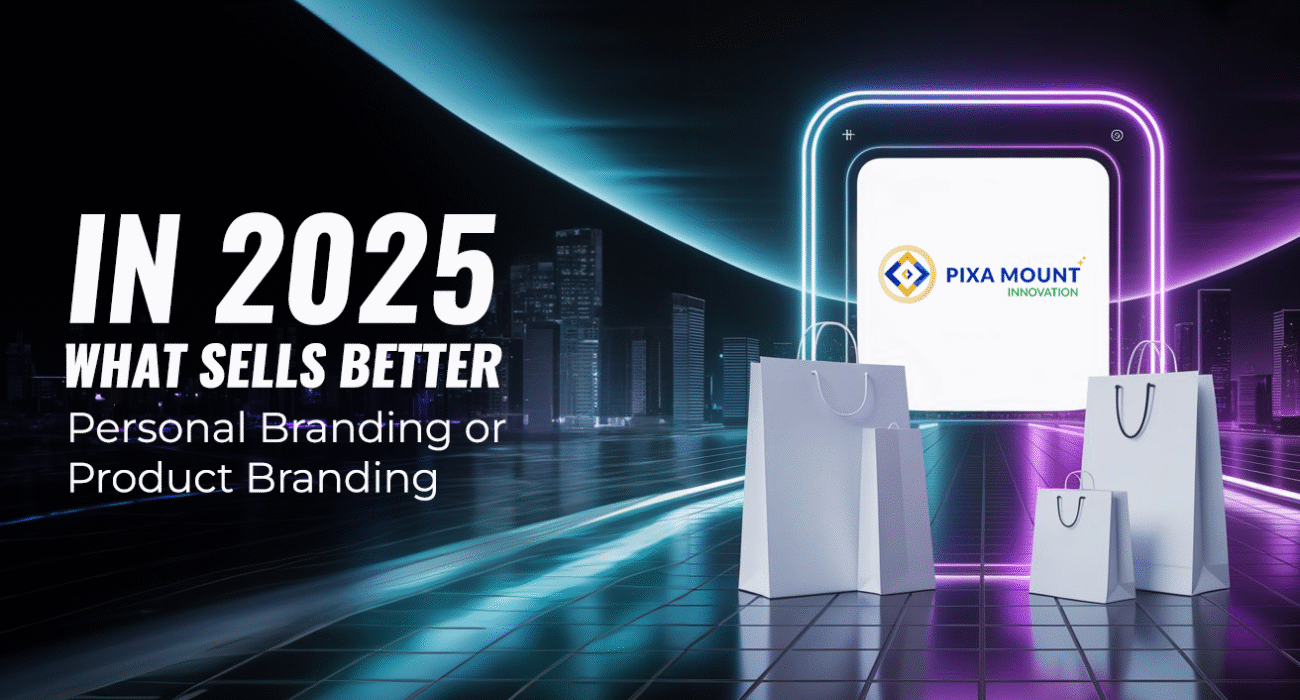Introduction: Why Branding Matters Everywhere
These days, you can’t escape the word branding. It shows up in nearly every business conversation, startup event, podcast, and LinkedIn post. But here’s the challenge — not everyone agrees on what branding actually means. Some people believe your personal brand — your story, values, and reputation — is what matters most. Others argue that a product brand is what really lasts, because a company can live on long after its founder has stepped away. So, who’s right? The truth is that both approaches work, but in very different ways. One helps you make connections. The other builds a lasting legacy. And the smartest entrepreneurs? They don’t choose one — they master both.What Does It Mean to Build a Personal Brand?
Personal branding is when people decide to buy because of you. It’s not just about your products or services. It’s about your story, your name, your voice, and your personality. Customers may feel like they know you even if they’ve never met you — and that sense of familiarity builds instant trust. Think about consultants, coaches, freelancers, or creators on YouTube and Instagram. Clients don’t just pay them for their skills; they buy because they trust the person behind the work.Why Personal Branding Works So Well
- People connect with people faster than with logos.
- If you switch industries, your audience often follows you.
- A brand tied to a real person feels more authentic and trustworthy.
- For beginners, personal branding can generate sales quickly.
What Does Product Branding Really Mean?
Product branding shifts the spotlight from the founder to the business itself. Here, it’s not about who you are. It’s about what the brand stands for. Customers may not know the founder’s name, but they recognize the logo, tagline, design, and customer experience. Think of Tata, Apple, or Nike. Most people don’t know who the CEO is, but they trust the brand because of what it represents.Why Product Branding Is Crucial (Especially for Startups)
- It shows credibility right from the start.
- It builds loyalty that doesn’t depend on one person.
- It ensures the business can run smoothly even without the founder.
- It helps companies stay relevant and competitive for the long term.
Which One Sells More?
This is the big question: should you focus on branding yourself, or putting the spotlight on your products? The short answer: both.- Personal branding = faster sales. People buy from people they know, like, and trust. That’s why coaches, trainers, and creators often see quick results when they share their personal stories.
- Product branding = long-term growth. Strong brands take longer to build, but they expand, scale, and often outlive their founders. Most people remember companies like Tata or Nike, not their CEOs.
- Does personal branding help sales? Yes — especially in the short term.
- Is product branding more profitable long term? Definitely.
Real-Life Examples of Personal Branding and Product Branding
Here are some real-world examples from India and abroad where branding made all the difference:- Ratan Tata vs Tata Group → Ratan Tata is admired for his humility and ethics. But the Tata brand itself — from Tata Steel and Tata Motors to Tata Tea and TCS — stands strong and trusted by millions.
- Falguni Nayar vs Nykaa → Falguni’s credibility as a banker gave Nykaa its trusted start. Today, Nykaa is a household name in fashion and beauty, much larger than her personal story.
- Aman Gupta vs boAt → Aman became a familiar face on Shark Tank, making boAt relatable. But it’s the company’s strong product branding that turned it into India’s leading audio and wearables brand.
Do You Really Have to Pick One?
Not at all. The smartest entrepreneurs don’t choose between personal branding and product branding — they combine both.How to Use Both Together
- Start with your personal brand. People connect with people first. Let them engage with your story.
- Build your product brand at the same time. Create a strong brand identity with logos, colors, and values that people can trust independently.
- Blend them together. Share your personal journey to capture attention, while letting your product brand deliver consistency and long-term value.

